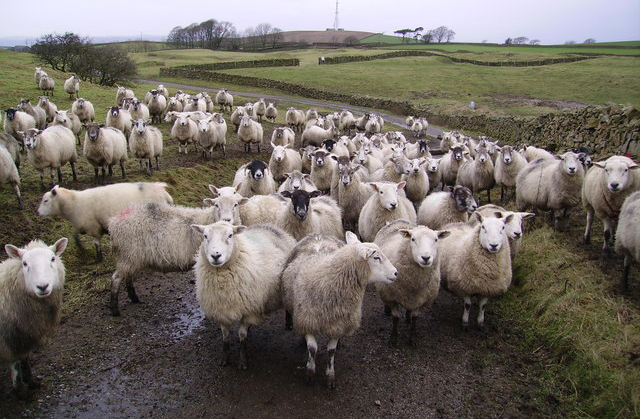
The publication of a report into the incidents that led to the deaths of over 40 sheep last year still leaves unanswered questions, the NFU said today.
On 12 September 2012, when a consignment of 540 sheep were unloaded at the port which resulted in three sheep drowning and more than forty more having to be humanely killed, Farming Minister David Heath asked the AHVLA to review its operational procedures.
"We have been calling for this report to be released since the events in September, having sent over 150 questions to AHVLA which we believed needed to be addressed" said NFU Deputy President Meurig Raymond.
"The report gives an insight into the events of that day but still leaves many questions to be answered, by both AHVLA and the RSPCA, who it appears exerted significant influence over government officials on the ground."
Welfare checks on the Ramsgate animals last year revealed a lorry load of sheep with no drinking water.
RSPCA inspectors joined staff from Animal Health and Veterinary Laboratories Agency (AHVLA) on the docks and inspections revealed a faulty pump meaning hundreds of sheep had no access to drinking water – a basic legal requirement.
Dr Julia Wrathall, head of the RSPCA’s farm animals science team, said: "Drinking water is one of the essential basics that sheep, or any animals, need during a journey which potentially can be long and hot.
"This breach of welfare rules highlights the need for better enforcement across Europe and a maximum eight hour journey time to help reduce the risk of animals suffering unnecessarily during transportation.”
After the review of procedures, AHVLA identified a number of enhancements to its operational practices. Some of the changes included an inspection of every consignment passing through Ramsgate; tougher enforcement of welfare procedures and ensuring a vet is always within an hour of the port to assist inspectors in the event of an emergency.
Raymond said: "It is highly concerning that, although the RSPCA has no official role at the port, from an early stage, they were making objections to agreed contingency plans, making interventions from their legal team and, within an hour of a problem being found, they had “instructed” AHVLA officers to unload animals at the port, despite RPSCA previously highlighting the lack of suitable facilities for handling animals."
"The NFU also still has questions about why the method of slaughter used by the RSPCA officers resulted in so much blood in the photographs that were taken and released to the media by the RSPCA.
"We cannot understand how the method of slaughter referred to in the report resulted in the blood patterns seen in the photographs.
"Not only that, but from the photographic evidence, it appears that the sheep were slaughtered together in a pen, in front of each other.
"That was after the RSPCA had objected to AHVLA’s original plan of euthanising one injured sheep on the transporter, and then sending the transporter on to a local facility in line with the agreed contingency plans, on the basis that the RSPCA felt it wasn’t appropriate to carry this out in front of the other animals.
The charity applied in December to seek a judicial review of the arrangements operated by AHVLA for the approval and supervision of live animal exports through the port of Ramsgate.
The permission was refused by Mr Justice Males following a consideration of the court papers.
Thanet District Council lifted its temporary ban on live exports at Ramsgate in November.
The animals are transported over to Calais on an open-decked, flat bottomed converted Russian tank transporter, the MV Joline.
The local authority had closed the port, which has no livestock handling facilities, to live exports in September following an incident when over 40 sheep had to be destroyed.
The port was then re-opened in October following legal action by Dutch exporters.
Raymond continued: "We cannot understand why the RSPCA published the photographs of the event and sought to make so much of the incident in the media, given the catalogue of delay and indecision identified in the report, the very clear influence of the RSPCA in the decision making process, and the fact that it was the RSPCA’s officers that slaughtered the sheep.
"We call upon the RSPCA to clarify what role their ‘inspectors’ at the port are there to fulfil.
"We now need to fully digest the report and we remain committed to working with Defra and AHVLA to ensure that British livestock can be traded freely but that both the standards and the enforcement of animal transport activities in the UK are maintained to safeguard animal welfare.”
